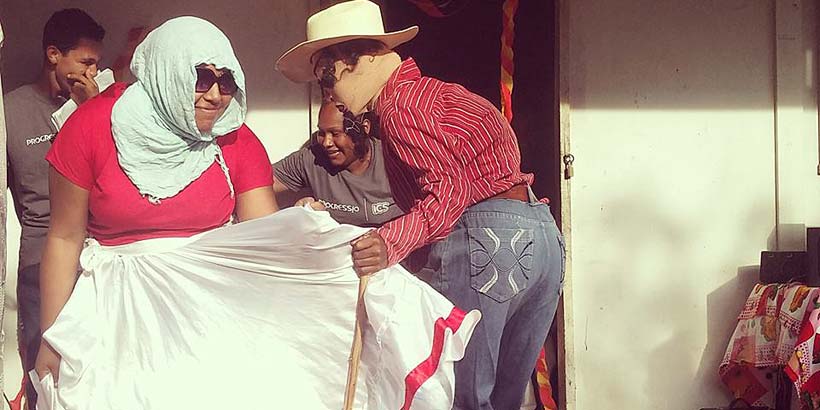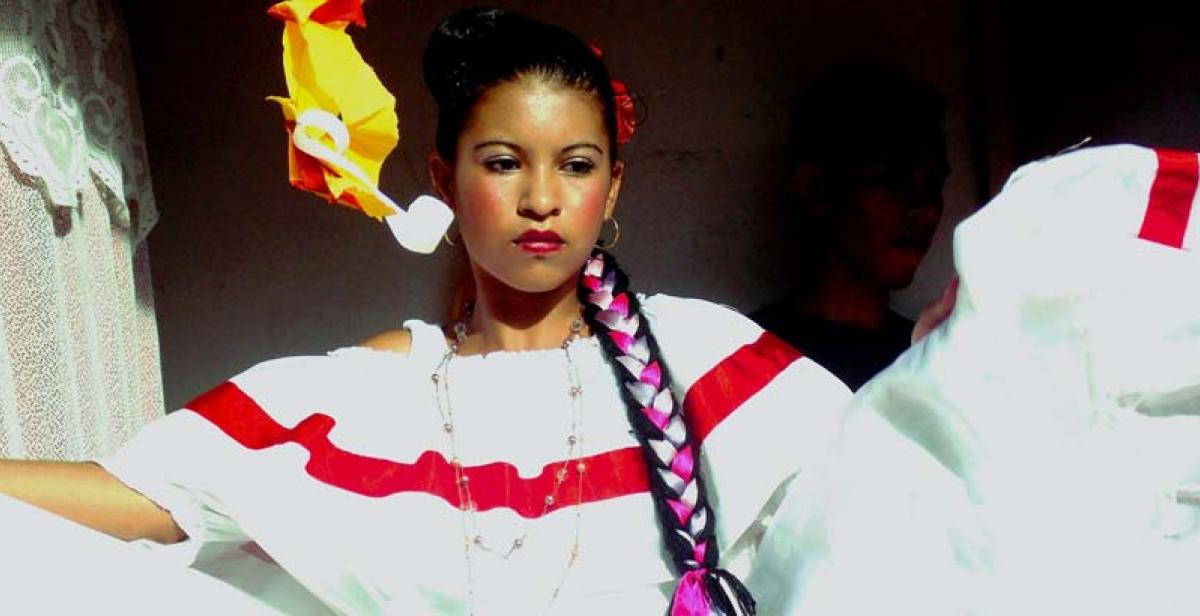Here, the veil between us and nature is thin. The insects are plenty and the rain is scarcer than it ought to be. Until today, there had not been a drop in five days in Parcila, a small community nestled in the mountains below the Honduran border. In the tail end of the wet season, this should not be normal, but the region is in the midst of a drought that has been loitering for a small few years now.
When the vast majority of food is locally grown, and agriculture is the primary source of income, climate and livelihood are inextricably linked, and I’ve been told that this year is a particularly bad one for crops. Rumour has it that the usual suspect, climate change, is to blame.
The Progressio ICS volunteers are here to help and learn from the ASOMUPRO (Asociación de Mujeres Productoras “Las Gaviotas”) led project, which aims to equip the community with the skills, knowledge and resources needed to cope in the face of ever more unpredictable weather patterns and help to ensure a sustainable and autonomous future.
For us, this first week has largely been about training, planning and integrating into the community. A welcoming ceremony was held for us the day after arriving in Parcila. It seemed as though most of the village had turned out for the occasion and the entertainment consisted of a mixture of modern and traditional dances, including ‘El Viejo y la Vieja’, a Nicaraguan comedy in which a bucksome but elderly coquette is harassed by a randy old letch on the dance floor. Fits of contagiously hysterical laughter ensued as the old letch hobbled after ‘La Vieja’, hypnotised by her gyrating inflated behind. The scene, complete with groping and reluctant audience participation, was as wonderfully debauched as any booze sodden wedding party that I’ve attended.

The community lives up to its title. It seems robust and vital. My host, Jose tells me that here “vivimos en paz”, in tranquillity, free from violence. However, we’ve been captivated by tales of Hurricane Mitch which devastated the country in 1998, and the revolution which originally brought Daniel Ortega, the current president, into power. Many here lived through the conflict and fought with the Sandistas. The city of Estelí, and its eponymous department, was a stronghold for the revolutionaries during the violence.
Today, one week in, brought the first tastes of the logistical and moral dilemmas that seem inevitable when privilege meets austerity and bureaucracy meets autonomy. For now, the UK volunteers are all eyes and ears, sponge-like, perched waiting for the culture shock expected when plunged into a strange and foreign land. As of yet, it seems an unlikely occurrence when it already feels so much like home.
Written by ICS volunteer Sam Baron. Photos by Luciana Asatrinei.



